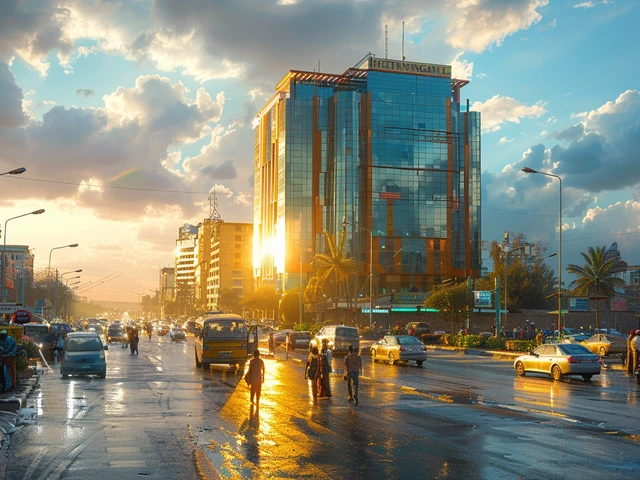Ethiopia Medical Profession Wages: What Do Healthcare Workers Really Earn?
Wondering how much medical professionals actually make in Ethiopia? You're not alone. The wages for doctors, pharmacists, and other healthcare workers have become a hot topic, especially as the demand for qualified staff keeps rising. If you’re aiming for a career in healthcare or just curious about salary trends, here’s a clear look at what you can expect to earn and what really shapes those numbers.
The salary spectrum in Ethiopia’s healthcare system has a lot of variation. Doctors in government hospitals usually get a basic salary that might seem modest by international standards, but it’s often paired with additional benefits like housing allowances or government-provided accommodation. Private sector doctors—and specialists in larger cities—can negotiate much higher pay, sometimes two or three times what public sector jobs offer.
Pharmacists also play an essential role in Ethiopia's healthcare network. Their salaries depend on experience, workplace (hospital, retail, or industrial), and even region. Government hospitals may offer job stability, but private clinics are where pharmacists might see their paychecks bump up, especially if they take on overtime or manage pharmacy operations.
Other healthcare jobs—like nurses, lab techs, and radiographers—show a similar trend. Entry-level professionals, especially in rural areas, may need to manage expectations since salary packages are often lower than in Addis Ababa or other big cities. But urban hospitals, especially private ones, are more likely to offer competitive pay to attract experienced staff and specialized skill sets.
Why such differences? Location is a big factor. A public sector nurse in Addis Ababa can expect higher pay than someone working at a health center in Oromia or Tigray. Another point: experience matters. New graduates start lower, but after a few years, salary increases and additional responsibilities can mean decent upward movement.
Now, what about the numbers? As of 2024, entry-level doctors might start with a salary ranging between 10,000–15,000 ETB per month in government service. Specialists, especially those with years in the field or running their clinics, can earn far more—sometimes 50,000 ETB or more depending on patient load and reputation. Pharmacists generally make between 7,000–18,000 ETB, again depending on experience and workplace type.
But salary isn’t everything. Job security, professional development programs, and perks like government housing or health insurance can make a huge difference in overall job satisfaction and financial well-being. Many medical professionals supplement their main income with consulting work, private practice, or teaching.
Want to increase your earning potential? It pays to specialize—think surgery, obstetrics, anesthesiology, or laboratory technology. Extra credentials, a solid professional network, and practical knowledge about the Ethiopian healthcare market will put you ahead of the pack. And if you’re open to relocation, urban centers or private clinics are often hunting for top talent willing to work busy hours for a better paycheck.
If you're considering joining the Ethiopian medical profession, understanding the real numbers helps you make smart career decisions. Whether you’re a fresh graduate or an experienced hand, knowing how to negotiate and where the opportunities are can really pay off.





